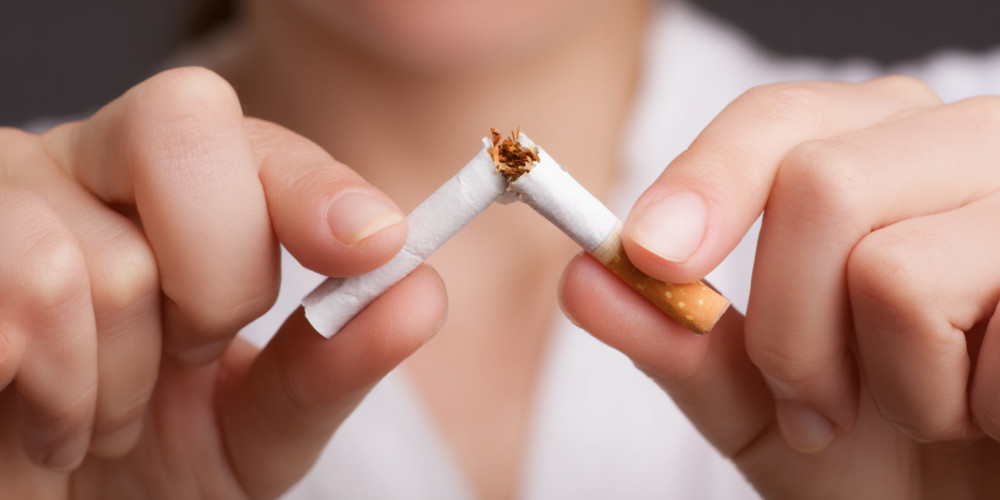5. Be Mindful of Alcohol

Alcohol is a sneaky one. A glass of wine might make you feel more relaxed in the moment, which is why many people are surprised to learn that it actually raises your blood pressure. This is especially true if you’re having more than two drinks per day. Alcohol can stimulate the release of stress hormones, affect the function of your blood vessels, and contribute to weight gain, all of which can drive your blood pressure up. If you drink, do so in moderation, and if your blood pressure is high, cutting back can make a significant difference.
4. Commit to Quitting Smoking

If you needed another reason to quit smoking, here it is. Smoking has a massive, two-fold negative impact on your blood pressure. First, the nicotine in tobacco products is a vasoconstrictor, meaning it temporarily narrows your blood vessels and increases your heart rate every time you smoke, causing an immediate spike in your blood pressure. Second, and more insidiously, the thousands of other chemicals in cigarette smoke damage the delicate inner lining of your blood vessels over the long term. This damage causes your arteries to become stiff and less flexible, leading to permanently elevated blood pressure.
3. Prioritize High-Quality Sleep

Sleep is not a luxury; it’s a biological necessity for a healthy cardiovascular system. Consistently getting less than six hours of sleep per night has been shown to increase your risk of developing high blood pressure. But it’s not just about quantity; it’s also about quality. Some people can sleep for eight or nine hours and still feel exhausted the next day. This can be a sign of obstructive sleep apnea (OSA), a condition where your breathing repeatedly starts and stops throughout the night. OSA is one of the major causes of resistant hypertension—high blood pressure that’s difficult to treat. If you are always tired during the day or if a partner tells you that you snore loudly, choke, or gasp for air in your sleep, please see your doctor to get tested.
2. Develop Healthy Stress Management Techniques

We all intuitively know that stress impacts our bodies, but the link to chronic high blood pressure is less direct than you might think. Acute stress—like giving a presentation or being stuck in traffic—can cause a brief, temporary spike in blood pressure. The real danger with chronic, long-term stress is how we cope with it. When we’re stressed, we’re more likely to engage in behaviors that raise blood pressure, like eating unhealthy comfort foods, drinking more alcohol, smoking, or skipping our workouts. This is why taking a moment to be mindful and developing healthy ways to manage stress is so important. This could be meditation, deep breathing exercises, yoga, spending time in nature, or simply making time for a hobby you love.
1. Consider a Furry Friend

I’m throwing this one in as a fun but surprisingly evidence-backed strategy. Multiple studies have shown that pet owners, and particularly dog owners, tend to have lower blood pressure. The companionship and unconditional love from a pet can have a profound calming effect. One small study even found that the effect of adopting a pet from a shelter on lowering blood pressure was greater than that of a standard blood pressure medication. Whether it’s the relaxing effect of petting a cat or the forced physical activity that comes with daily dog walks, a furry friend can be a wonderful addition to a heart-healthy lifestyle.
What’s the Goal? Understanding Your Target Numbers

So, let’s say you’re doing all these things and your blood pressure is coming down nicely. What number are we actually aiming for? A groundbreaking study called the SPRINT trial aimed to answer this exact question. Researchers compared a target systolic blood pressure of 140 mmHg to a more intensive target of 120 mmHg in a large group of adults at high risk for heart disease. The results were profound. The group with the lower target of 120 had a 25% lower risk of heart attack and stroke and a 27% lower risk of death from all causes. While the more intensive treatment did come with some side effects like dizziness, these findings were so significant that they helped lead major medical organizations to lower the threshold for diagnosing hypertension from 140/90 down to 130/80.
Final Thoughts
The goal of this article is not to overwhelm you. You don’t have to implement all of these changes at once. The key to long-term success is sustainability. Adding in small, manageable changes over time can have a huge cumulative impact on your health. I challenge you to pick just one thing from this list that you feel you can start with this week. Commit to it. Remember, even if you do everything right, your genetics or other factors may mean your blood pressure is still elevated. That is perfectly okay, and that’s where medications can be incredibly helpful and life-saving. If you’ve learned something valuable today, share this with someone you care about. Together, we can empower each other to take control of our health.
Source: Dr. Siobhan Deshauer

